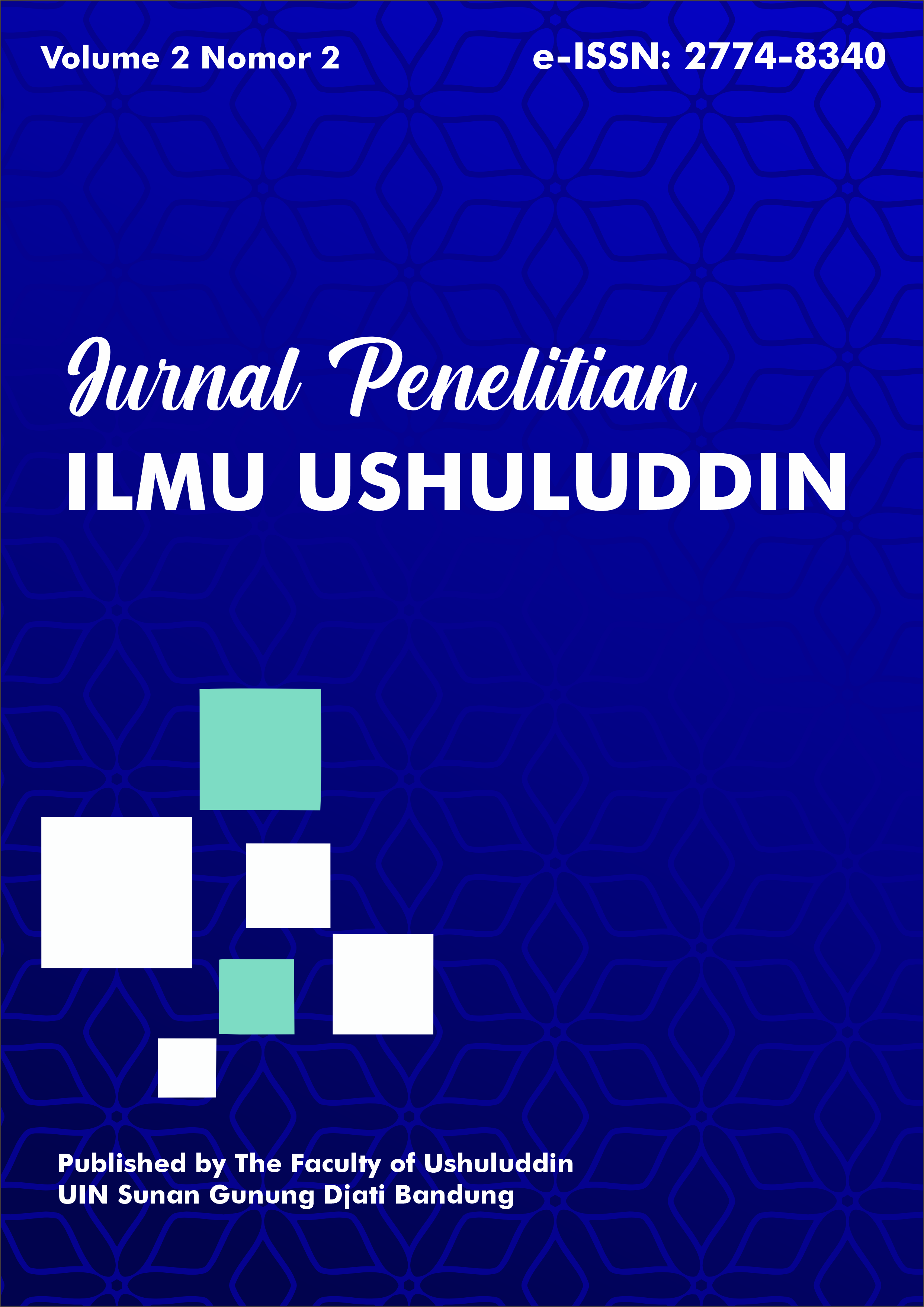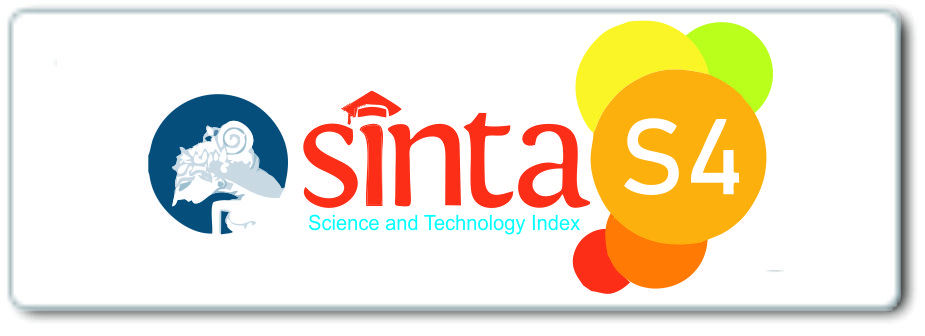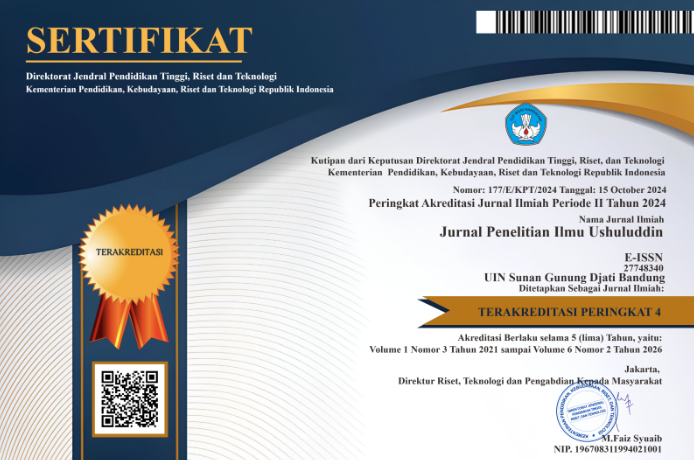Efektivitas Terapi Zikir dalam Mengurangi Kecemasan pada Remaja Menjelang Ujian
DOI:
https://doi.org/10.15575/jpiu.15578Keywords:
Dikir, Exam, Teenager, WorryAbstract
This study aims to discuss the effectiveness of dhikr therapy in reducing anxiety in adolescents. This study uses a quantitative approach with case methods and field research, while the instrument used is a questionnaire containing questions. The results of this study indicate that adolescents or students experience anxiety in facing exams and by doing dhikr therapy the heart becomes calm so that when they are about to take the exam they become focused and fluent. In conclusion, dhikr itself is a prayer which will remember and express feelings, desires and desires. So that with dhikr people will get peace of mind and inner relief, because they will remember themselves and feel reminded by Allah SWT.References
Arikunto, S. (2002). Prosedur Penelitian: Suatu Pendekatan Praktek. PT Rineka Cipta.
B, Ahmad A’toa’bin Mokhtar1, M. B. M. N. (2021). Zikir dan Tafakkur Asas Psikoterapi Islam. Jurnal Pengajian Islam, vol 14, 204–205.
Dikson, D. N., Vrochopoulos, S., & Burton, J. (1997). Public Image of Counseling Psychology:: What Introductory Psychology Textbooks Say. The Counseling Psychologist, 25(4). https://doi.org/10.1177/0011000097254009
Holland, R. G., & Lawrimore, K. W. (2011). Enhancing Active Learning Through The Luck of The Draw. American Institute of Higher Education – The 6th International Conference, 168–172.
Iin patimah, Suryani S, & A. N. (2015). Pengaruh Relaksasi Zikir terhadap Tingkat Kecemasan Pasien Gagal Ginjal Kronis yang Menjalani Hemodialisa. vol 3 no 1, 18–34.
Kurniawan, W., & Widyana, R. (2013). Pengaruh Pelatihan Zikir Terhadap Peningkatan Kebermaknaan Hidup pada Mahasiswa. Jurnal Intervensi Psikologi (JIP), 5(2), 67–88. https://doi.org/10.20885/intervensipsikologi.vol5.iss2.art5
Laila Fida Nabihah Solehah. (2012). Faktor-Faktor Penyebab Kecemasan Siswa dalam Menghadapi Ujian Nasional. Perspektif Ilmu Pendidikan, Vol 25, 16–17.
Niko, P. F. (2018). Pengaruh Terapi Dzikir untuk Menurunkan Kecemasan pada Ibu Hamil. Islamika, 1(1), 24–33.
Retnawati, S. (2011). Pengaruh Pelatihan Relaksasi dengan Dzikir untuk Mengatasi Kecemasan Ibu Hamil Pertama. Psikoislamika, 8(1), 1-21.
Rudy Haryanto. (2014). Dzikir: Psikoterapi dalam Prespektif Islam. Jurnal Hukum Dan Pranata Sosial, 9(2), 341–342.
Saefulloh, A. (2012). Terapi Zikir Jama’ati di Desa Luwoo dan Tenggela Kabupaten Gorontalo. Al Ulum, 12(1), 223–244.
Sarason, I. G. (1984). Stress, anxiety, and cognitive interference: Reactions to tests. Journal of Personality and Social Psychology, 46(4), 929–93.
Vivin, V. (2019). Kecemasan dan Motivasi Belajar. Persona:Jurnal Psikologi Indonesia, 8(2), 240–257. https://doi.org/10.30996/persona.v8i2.2276
Downloads
Published
Issue
Section
License
Authors who publish in Jurnal Penelitian Ilmu Ushuluddin agree to the following terms:
- Authors retain copyright and grant the journal right of first publication with the work simultaneously licensed under an Attribution-ShareAlike 4.0 International (CC BY-SA 4.0) License that allows others to share the work with an acknowledgment of the work's authorship and initial publication in this journal.
- Authors are able to enter into separate, additional contractual arrangements for the non-exclusive distribution of the journal's published version of the work (e.g., post it to an institutional repository or publish it in a book), with an acknowledgment of its initial publication in this journal.
- Authors are permitted and encouraged to post their work online (e.g., in institutional repositories or on their website) prior to and during the submission process, as it can lead to productive exchanges, as well as earlier and greater citation of published work (See The Effect of Open Access).












